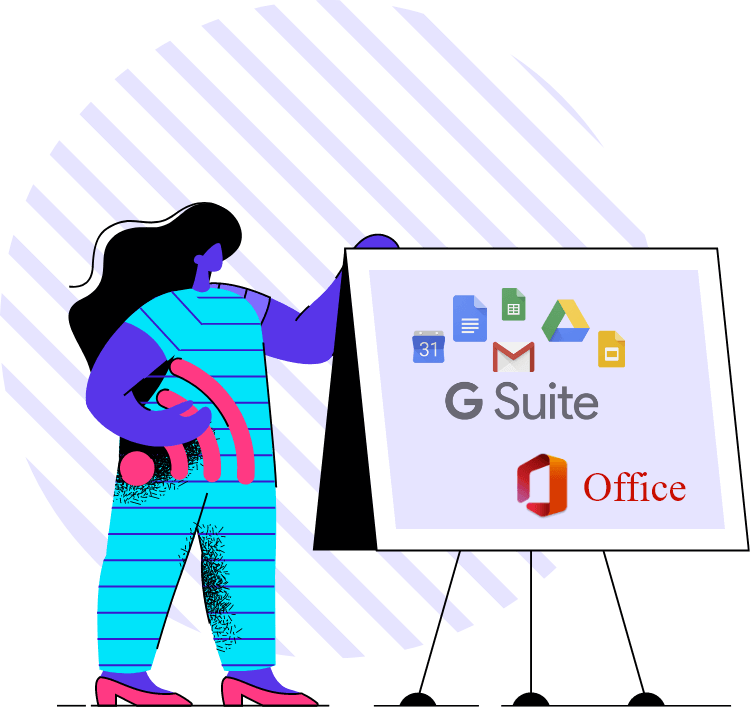You’ve tried everything but a VPS Now you’ll see why the smart sites use a VPS
Get a free 3 day trial on a test domain
why is your website running painfully slow?
Only a handful of factors affect website speed. Eighty percent (80%) of the time it's your web hosting server that’s slowing down your website. Thankfully, you don’t need to be a tech-expert to fix it. You can improve your site’s speed by upgrading your server.
WEB HOSTING SERVER: 80% OF THE PROBLEM
Your website loads from the ground up. When someone clicks on your website, they are asking for your website to start up. It’s the equivalent of turning the key to start up your car’s engine.
The customer’s browser (Chrome, Safari, etc) pings your web hosting server asking for the images and text, so it can load up your website. Customers expect your website to show up in their web browser in milliseconds.
A slow server will always take longer to respond. A slow response can cost you thousands of visitors and conversions.

THREE TYPES OF WEB HOSTING SERVERS
Websites are hosted, or stored, on special computers called servers. Your web hosting provider gives you space on a server to make your website accessible via the World Wide Web. Your three (3) server options for web hosting are:

Shared server
Shared hosting is the most economical choice for newly launched websites and for websites with a minimal amount of daily traffic. As the name suggests, you’re sharing server space and resources with many other websites.

Virtual Private Server (VPS)
A VPS is how you keep your pages loading in milliseconds when your website traffic has increased. It combines the cost efficiency of a shared server with the ability to control server resources like a dedicated server.

Dedicated Server
When your website’s daily traffic reaches Google-levels it’s time for a dedicated server. Your website will be the only one hosted on the server, which gives you complete control of server resources.
SPEED MATTERS
Visitors expect your website to load within two (2) seconds or less, whether they are accessing it from a web or mobile browser.
Moreover, Google will give your page a higher rank if it loads fast.
So, speed matters! Here’s how to think about it:
Slow | Slow sites start to load in over 2.5 seconds.
Average | Average sites start to load in 1 to 2.5 seconds.
Fast | Fast sites load in less than 1 second.

SERVER LOCATION MATTERS, TOO
We’re still ruled by the laws of physics. Despite technological advancements, data and information can only travel so fast across a state, country, or the world. So, always keep your server and website traffic geographically close to each other.
THE OTHER 20%
Your web design, cleanliness of code, cache, plugins and visual media fall into the other 20% of things that
can be slowing down your website.

Media optimization
The quality and quantity of media files also have an effect on your site’s speed. Larger-sized images and videos take longer to load in web browsers. The more media files on a page, the longer it will take for that page to load in the browser.

WordPress Plugins
WordPress plugins are a useful way to add functionality to your website. However, when you have too many plugins on your website or use plugins that aren’t optimized for speed you can dramatically slow your website down.

WordPress Themes
WordPress themes are interchangeable designs that give your site its look and feel. It’s a template, so all the front end code to style your website, from the page layout to fonts and colors, is already written into it.

ON FINAL NOTE... BUSINESS E-MAIL
Email is one of the most important communication tools for business owners. So, set up your professionally branded email address on Google's G Suite or Microsoft's Microsoft 365.
It’s tempting to have the same hosting provider take care of both your website and email. But don’t take the bait. Most web hosting providers can’t match the reliability, security, and productivity tools offered by G Suite and Microsoft 365.
Reliability is the key advantage of G Suite and Microsoft 365. You know that any email you send will be delivered.
Added benefits include: cloud storage, file sharing, shared company calendars, video conferencing, and more.